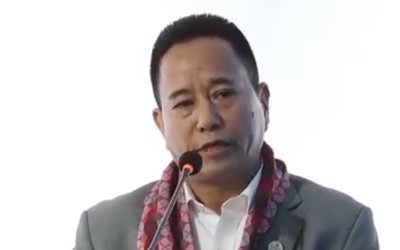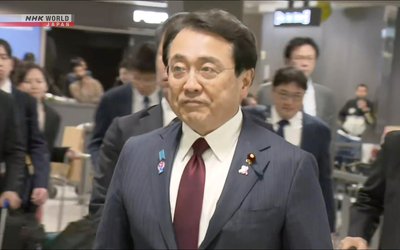More on News





As the UN Country Team, we strongly, believe we remain more than relevant in the Nepal context and our most important results in Nepal this year past, are those we have achieved along-side the government.
UNICEF’s work with the government on the National Hygiene and Sanitation Master plan. UN Women’s work with Ministries on gender-budgeting. The UN Capital Development Fund’s support to the Ministry of Local Development on block grants. UNDP’s assistance to the Electoral Commission to update the voter-roll. The International Labor Organization’s work on the new Social Security Organization Act. UN-Habitat’s work on urban environment guidelines and the new Municipal Solid Waste Management Act.
UNFPA’s Support to the Statistics Bureau for the year’s very successful National Census is another example of the great things we can and do achieve together. The World Food Program reached 1.2 million Nepalese this year, many pushed towards food insecurity by changing weather patterns. UNDP’s micro-hydro program connected another 5,000 households to electricity. FAO extended support to 6,000 leased forestry groups.
The September 18 earthquake 300 kms to our east was a timely reminder of the need to scale up our risk reduction efforts and virtually the entire UN Country Team is working on this issue and is active members of the Nepal Risk Reduction Consortium. The World Health Organization support to the Health Ministry on TB Control surpassed global targets this year is another example of where an ounce of prevention is worth a proud of cure.
The UN Office for Drugs and Crime and UN AIDS are both at the front end of the UN’s preventive efforts here, educating and assisting some of the most at-risk groups from people in prison to drug users to the family of migrants. UNCIEF’s efforts to extend safe water and sanitation coverage will translate into fewer fatalities from water-borne diseases.
Our Human Rights office has worked hard with the National Human Rights Commission to champion accountability as well as justice for some of Nepal’s most vulnerable communities, with the passing of the Caste Based Discrimination Act by Parliament this past year a major milestone in this effort. Our Regional Center for Peace and disarmament worked with law enforcement agencies on combating illicit small arms trafficking. The work of the UN High Commissioner for Refugees and of the International Office for Migration to safely and permanent resettling of another 17,000 Bhutanese refugees from Nepal was another key contribution to this larger goal.
Nepal is understating one of the most ambitious transitions of its own in social, political and economic spheres. As the UN Country Team in Nepal, we pride ourselves on our efforts this past year to train ex-members of the Maoist Army for new employment opportunities, of our support to the constitution drafting process, of our support to develop a peace and development strategy for Nepal shared by all Nepal’s development partners. Similarly, our Mine Action Team worked with Nepal Army to clear the last mine field in June-a historic milestone. And the small team from the UN’s Political Affairs Department continued to work quietly to maintain the UN’s dialogue with political actors.
UNESCO helped more than 1,000 women to read and write in their mother tongue, Maithali, Awadhi and supported the establishment of one the first women’s community radio stations in Jumla. The World Food Program delivered daily meals to 190,000 school children, and UNICEF’s years of advocacy for schools to be declared Zone of Peace paid off, both concrete examples where the UN in Nepal has helped give young people a better start in life.
(Robert Piper is UN Resident and Humanitarian Coordinator. This is the excerpt of the statement delivered by Piper on the occasion of UN Day-2011)





